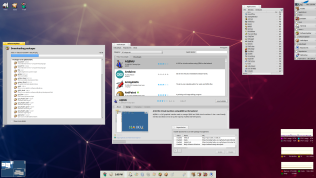Featured articles
DevOps for the Sinclair Spectrum! A series of articles exploring a modern development environment for the classic 8-bit 1980s home computer
Haiku Package Management: A tour of the unique package management capabilities of the alternative Haiku Operating System
Amiga Systems Programming in 2023: A look at developing, packaging and distributing software for AmigaOS and derivatives
Recent Posts
Tiller 0.7.7 and file globals
Thanks to a nice suggestion by kydorn in issue #18, the file datasource supports a global_values: block, so you can now create defaults per environment (and use the defaults datasource to provide a default for all environments). This is available in Tiller 0.7.7, which was just released.
Gitter chatroom for Tiller
Another super-quick update : There’s now a Gitter chatroom for Tiller. Feel free to drop by for help and chat with other users!
Tiller 0.7.6 and environment JSON v2
I recently released Tiller 0.7.6 with a new feature for the environment_json plugin. This can be used to provide dynamic configuration for Docker containers, using JSON in an environment variable. I previously posted a complete example of how you’d make use of this. However, most Tiller plugins provide values as “global” sources, which will be over-ridden by local, template-specific values. The documentation makes note of this in the “Gotchas” section, but there’s now anot...
Tiller 0.7.0 and simpler configuration files
Yesterday, I released Tiller 0.7.0, and as you might imagine with a version “bump” from the 0.6.x series, there’s a few changes. Some of it is internal stuff that you’ll probably only notice if you’re building your own plugins for Tiller, but there is a fairly big new feature for end users: Single-file configuration.
Centralized Docker container configuration with Tiller
If you’ve been using Docker for a while, you probably know that you can use Tiller to generate configuration files inside your containers. This means you can provide a single container for running in a variety of different environments (think of a web application that needs different database URIs and credentials depending on where it is run).



